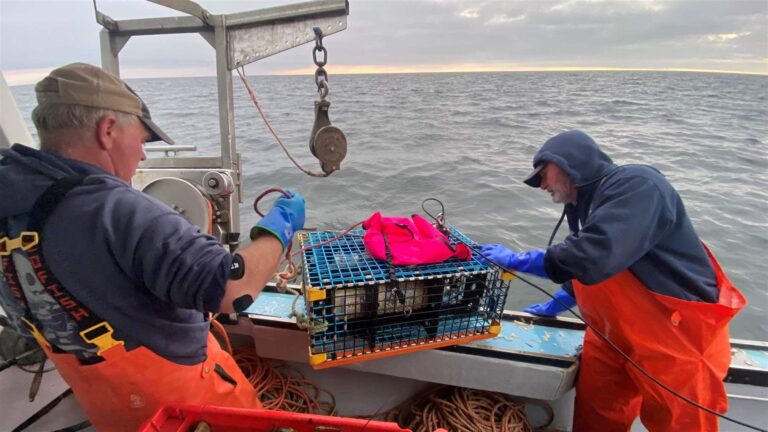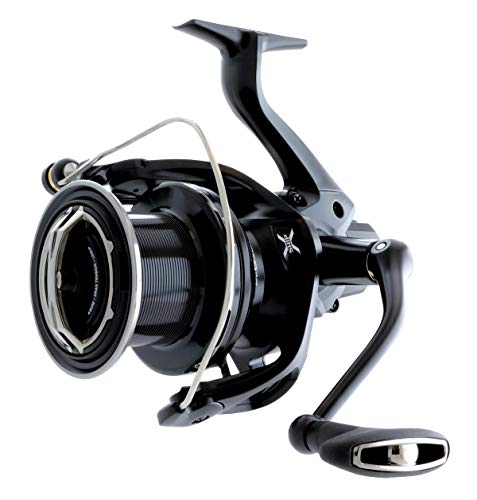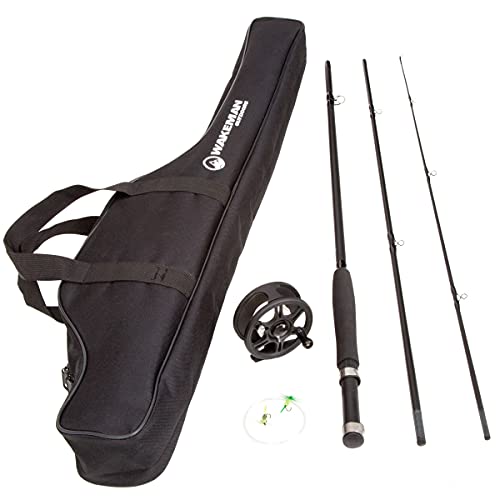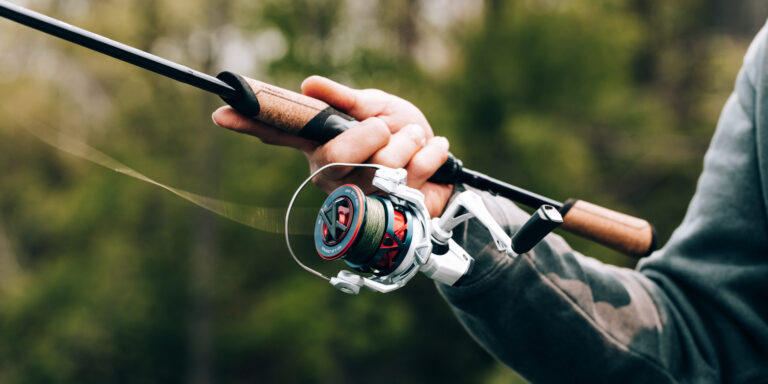To join a fishing club, you can start by researching local clubs in your area and reaching out to them directly for membership information.

Credit: igfa.org
Finding Local Fishing Clubs
If you’re keen on joining a fishing club, there are several avenues you can explore to find local options. From online directories and forums to local tackle shops and angler’s associations, let’s dive into the various ways you can connect with fishing clubs in your area.
Online Directories And Forums
Some of the popular online platforms can help you find local fishing clubs near you. Here are the key points to keep in mind when using online directories and forums:
- Browse through fishing-specific directories: Websites like fishbrain, bassmaster, and angling direct provide comprehensive directories of fishing clubs, including their locations and relevant details.
- Join fishing forums: Engage with the fishing community by participating in online forums such as fishing network, fishing chat, or fishidy. These platforms often have sections dedicated to discussing local fishing clubs, enabling you to gather insights from experienced anglers.
- Utilize social media groups: Facebook, reddit, and other social media platforms offer dedicated groups focused on fishing and angling. Search for local fishing club groups in your area and connect with fellow anglers to find out about potential club memberships.
Local Tackle Shops
Your local tackle shop can be an excellent resource for finding fishing clubs near you. Consider the following points when exploring this option:
- Strike up a conversation with the store staff: Tackle shop employees are typically knowledgeable about the local fishing scene. They may have information about nearby fishing clubs and can provide valuable recommendations.
- Check bulletin boards and flyers: Local tackle shops often have community bulletin boards or display flyers advertising local fishing clubs. Take a moment to peruse these notices when visiting the shop.
- Attend workshops and events: Tackle shops sometimes organize workshops or events that bring the fishing community together. By participating in these activities, you can meet experienced anglers who may be part of fishing clubs themselves.
Angler’S Associations
Angler’s associations, also known as fishing associations, are organizations that promote fishing and angling in specific regions. Here’s what you should know about connecting with fishing clubs through such associations:
- Research local angler’s associations: Look for angler’s associations in your area, like the american sportfishing association or the anglers’ conservation association. These associations often have affiliations with local fishing clubs and can provide you with information about nearby options.
- Attend association meetings and events: Many angler’s associations hold regular meetings and organize events for fishing enthusiasts. By participating in these gatherings, you can network with like-minded individuals, including club members who can guide you toward joining a fishing club.
- Contact the association directly: Reach out to the angler’s associations via phone or email. They may be able to provide you with a list of affiliated fishing clubs in your area.
Now that you know where to look, you can embark on your journey to finding and joining a local fishing club. These resources will help you connect with fellow anglers, learn from experienced fishermen, and enhance your fishing adventures. So go ahead, cast your net wide, and reel in the excitement of joining a fishing club in your area!
Types Of Fishing Clubs
Fishing is a great pastime that allows you to connect with nature while reaping the benefits of catching your own dinner. If you’re looking to take your fishing skills to the next level and surround yourself with fellow enthusiasts, joining a fishing club may be the perfect option for you.
Fishing clubs provide a supportive community, access to exclusive fishing spots, and opportunities to learn from experienced anglers. In this section, we will explore the different types of fishing clubs available to help you find the one that aligns with your interests and goals.
Freshwater Fishing Clubs
- Freshwater fishing clubs focus on angling in rivers, lakes, and ponds that are not connected directly to the ocean. These clubs provide a platform for freshwater anglers to share tips, strategies, and experiences related to catching species such as bass, trout, catfish, and pike.
- Benefits of joining a freshwater fishing club include:
- Access to well-maintained private fishing areas with abundant fish populations.
- Educational workshops and seminars conducted by experienced anglers to improve your skills.
- Friendly competitions and tournaments to test your angling abilities and bond with fellow members.
- Networking opportunities with like-minded individuals who have a passion for freshwater fishing.
- Possibility of participating in conservation and restoration projects to protect and enhance freshwater habitats.
Saltwater Fishing Clubs
- Saltwater fishing clubs focus on angling in oceans, seas, and saltwater estuaries. These clubs cater to individuals who enjoy the thrill of catching species like tuna, marlin, snapper, and snook in deep waters.
- Joining a saltwater fishing club can offer various advantages:
- Access to deep-sea fishing charters and club-owned boats for offshore adventures.
- Opportunities to learn from experienced saltwater anglers about the best techniques, equipment, and bait for specific species.
- Regular club outings and fishing trips, which provide camaraderie and a chance to explore new saltwater fishing spots.
- Participation in tournaments and competitions focused on saltwater angling to showcase your skills.
- Involvement in conservation efforts to preserve marine ecosystems and sustain fish populations.
Fly Fishing Clubs
- Fly fishing clubs cater to those who enjoy the art of angling with artificial flies made of feathers, fur, and other natural materials. These clubs specialize in fishing for trout, salmon, and other species in rivers and streams.
- Here are some reasons why you might consider joining a fly fishing club:
- Access to exclusive fly fishing-only stretches of rivers and private waters.
- Workshops and demonstrations led by expert fly fishermen to refine your casting techniques and learn new fly patterns.
- Organized group trips to renowned fly fishing destinations where you can test your skills in different settings.
- Fly tying sessions and equipment swaps to share knowledge and resources with fellow members.
- Collaboration with local conservation organizations to protect the health of rivers and promote sustainable fly fishing practices.
Membership Requirements And Fees
Joining a fishing club can be an exciting opportunity for fishing enthusiasts to come together, share experiences, and participate in organized fishing activities. Whether you are a seasoned angler or just starting out, becoming a member of a fishing club can provide a range of benefits.
In this section, we will explore the membership requirements and fees associated with joining a fishing club.
Age Restrictions
- Fishing clubs typically have age restrictions in place to ensure the safety and appropriate conduct of all members.
- The age requirement may vary from club to club, but it is common to see a minimum age of 18 or 21 years old.
- Some fishing clubs may offer junior memberships for younger individuals, providing them with the opportunity to learn and grow in the sport.
Annual Dues
- Membership dues are a common way for fishing clubs to cover their operational costs, maintain facilities, and organize events.
- Annual dues can range from modest amounts to more substantial fees, depending on the club’s size and offerings.
- These fees are typically paid once a year, and they contribute to the overall sustainability of the club.
Additional Fees (Boat Access, Tournaments)
- Fishing clubs may have additional fees associated with certain amenities or activities.
- Boat access fees: If the club has water bodies where members can fish using boats, there may be charges for boat storage, launching, or rentals.
- Tournament fees: Fishing tournaments are often organized by fishing clubs, and participation may require an additional fee.
- It is essential to inquire about these extra costs before joining a fishing club to understand the full financial commitment.
Joining a fishing club opens the door to a community of like-minded individuals who share your passion for fishing. Now that you understand the membership requirements and fees associated with fishing clubs, you can make an informed decision and embark on an exciting fishing journey.
So go ahead, find a fishing club that suits your needs, and reel in some unforgettable experiences on the water!
Contacting The Club
Joining a fishing club is an excellent way to connect with fellow fishing enthusiasts, gain valuable knowledge, and enjoy the camaraderie of like-minded individuals. If you’re interested in joining a fishing club, one of the first steps you’ll need to take is contacting the club.
This article will guide you through the process of reaching out to a fishing club and provide you with the necessary information to confidently take the next step.
Phone Or Email
When it comes to contacting a fishing club, you have a few options available to you. The most common methods are via phone or email. Choose the one that suits you best and follow these key points:
- Phone: If you prefer direct communication, calling the club is a great option. Here’s what you need to do:
- Find the club’s phone number on their website or through a quick online search.
- Dial the number and introduce yourself as a prospective member.
- Be courteous and prepared to provide any necessary information they may require.
- Ask about the club’s upcoming events or meetings schedule.
- Inquire about membership fees, if applicable, to gain a clear understanding of the costs involved.
- Email: If you prefer written communication or need to reach out outside of business hours, sending an email is a convenient choice. Here’s how to go about it:
- Locate the club’s email address on their website or social media pages.
- Write a well-crafted email introducing yourself and expressing your interest in joining.
- Provide relevant details such as your fishing experience, preferred fishing methods, and any special interests you may have.
- Inquire about the club’s membership requirements and any application process they may have in place.
- Request information about their upcoming events, meetings, or any trial sessions they offer.
Attending Club Meetings
Attending club meetings is a crucial step in becoming a part of the fishing community. Here’s what you need to know before attending a fishing club meeting:
- Club websites: Check the club’s website for details on meeting times, dates, and locations. Don’t forget to note down any specific instructions or requirements for first-time attendees.
- Arrive early: To make a good impression and familiarize yourself with the surroundings, arrive a few minutes early before the meeting starts.
- Introduce yourself: Once the meeting begins, take the opportunity to introduce yourself to other members. Share a bit about your fishing background and express your enthusiasm for joining the club.
- Observe and participate: During the meeting, take the time to listen and learn from other members’ experiences and expertise. Feel free to participate in discussions and ask questions.
- Take notes: Bring a notepad and pen to jot down any important information or tips shared during the meeting.
- Follow-up: After the meeting, consider reaching out to fellow members who share similar interests or expertise. Building connections within the club can enhance your fishing journey.
Remember, joining a fishing club is not merely about gaining fishing knowledge but also about forming long-lasting friendships. So, make the most of each interaction and enjoy the journey of being part of a fishing club.
Understanding Club Rules And Regulations
Joining a fishing club can be an exciting step for any angler. However, before you dive in, it’s crucial to understand the rules and regulations that govern the club. This section will walk you through the key aspects you need to know about fishing regulations, boat and gear requirements, and tournament rules in a fishing club.
Fishing Regulations
Fishing regulations play a crucial role in maintaining healthy fish populations and ensuring a sustainable fishing environment. Familiarizing yourself with the fishing regulations of the club will help you stay in line with the guidelines and avoid penalties. Here are some key points to consider:
- Catch limits: Each fishing club enforces catch limits to preserve the fishery. These limits may vary depending on the species, size, and time of year. Ensure you know the specific regulations for each species you target.
- Fishing seasons: Seasons may restrict fishing during certain periods to protect fish spawning or migration. Check the club’s fishing calendar to know when specific species are in season.
- Fishing methods: Different clubs may have rules about the fishing methods you can use. Some clubs may permit only catch-and-release, while others allow specific forms of fishing like fly-fishing or bait fishing.
- Size restrictions: Many fishing clubs have minimum size restrictions for certain species to protect juvenile fish. Make sure you know the size limits and abide by them to contribute to the sustainability of the fishery.
Boat And Gear Requirements
Fishing clubs often have rules regarding the type of boats and gear allowed on their waters. Understanding these requirements ensures a level playing field for all members and helps maintain safety standards. Consider the following points when it comes to boat and gear regulations:
- Boat size limitations: Some clubs have size restrictions on boats allowed on their waters. Be aware of any limitations and ensure your boat fits within the specified dimensions.
- Motor restrictions: Certain fishing clubs only permit boats with a maximum horsepower limit. Make sure your boat’s motor adheres to these regulations to comply with the club’s rules.
- Safety equipment: All fishermen must carry essential safety equipment on board. Life jackets, fire extinguishers, navigation lights, and other safety gear may be mandatory. Check the club’s regulations to ensure you have the required equipment readily available.
- Gear limitations: Fishing clubs may have guidelines on the type of gear you can use. For example, some clubs prohibit the use of certain fishing methods or restrict the number of rods you can use. Familiarize yourself with these limitations to avoid any violations.
Tournament Rules
If you’re interested in participating in fishing tournaments hosted by the club, you must understand the tournament rules. These rules may differ from regular fishing regulations and can significantly impact your chances of success. Here are some points to consider:
- Eligibility: Check the tournament rules to understand who is eligible to participate. Some tournaments may restrict entry to club members only, while others may be open to both members and non-members.
- Scoring system: Each tournament may have a unique scoring system. Understand how points are awarded based on factors like the species caught, size, and number of fish.
- Fishing boundaries: Tournaments often define specific boundaries within which anglers are allowed to fish. Study the tournament guidelines to know the permitted fishing areas and any restrictions on moving between locations.
- Time limits: Tournaments typically have a set duration during which anglers can fish. Make sure you know the start and end times and comply with these limits.
- Reporting requirements: To participate in tournaments, you may be required to submit catch reports or provide other documentation. Familiarize yourself with the reporting requirements to ensure you meet all obligations.
By understanding and adhering to the fishing regulations, boat and gear requirements, and tournament rules of your fishing club, you can make the most of your membership while contributing to the sustainability and enjoyment of the sport.
Engaging With Other Club Members
Building connections and engaging with other club members is an essential part of joining a fishing club. Whether you’re a newcomer or a seasoned angler, getting to know your fellow members can enhance your fishing experience and provide opportunities for growth.
Here are some ways to engage with other club members:
Attend Social Events
Attending social events organized by the fishing club is a great way to connect with fellow anglers in a more relaxed and informal setting. These events often include social gatherings, barbecues, or even fishing tournaments. Engaging with other members during these occasions can lead to valuable friendships and exchange of angling knowledge.
Consider these points:
- Join club-sponsored outings or weekend fishing trips to interact with members outside of regular meetings.
- Participate in club-sponsored social activities such as picnics, family events, or even fishing-themed parties.
- Use these opportunities to strike up conversations with fellow anglers, share stories, and learn from each other’s experiences.
Participate In Club Projects
Getting involved in club projects is not only a way to give back to the fishing community but also a means to connect with other members who share your passion. Collaborating on projects allows you to learn from seasoned anglers, gain new skills, and contribute to the club’s growth.
Consider these points:
- Volunteer for initiatives such as habitat restoration projects or community outreach programs organized by the fishing club.
- Take part in club workshops or training sessions to hone your skills and expand your knowledge.
- Engage in collaborative efforts with other members on projects like fish stocking, conservation initiatives, or organizing educational events.
Volunteer Opportunities
Volunteering within the fishing club offers countless opportunities for engagement and camaraderie. By giving your time and skills, you not only contribute positively to the club but also create meaningful connections with fellow members. Consider these points:
- Sign up for volunteering roles in club activities and events, such as organizing tournaments, maintaining club facilities, or assisting with administrative tasks.
- Offer your expertise and experience to mentor or provide guidance to newer members, fostering a supportive and inclusive community.
- Take part in conservation efforts by participating in clean-up days, environmental awareness campaigns, or fishery research programs.
Remember, the more active you are in engaging with other club members, the more rewarding and enjoyable your fishing club experience will be. Embrace the camaraderie, share your knowledge, and forge lasting connections that will enhance your angling journey. So, don’t hesitate to dive into the vibrant world of fishing clubs and make the most of the opportunities that lie ahead.
Happy Fishing!
Learning From Experienced Anglers
Being part of a fishing club not only allows you to share your passion for angling but also provides an incredible opportunity to learn from experienced anglers. These individuals bring a wealth of knowledge and expertise that can greatly enhance your fishing skills and overall enjoyment of the sport.
Here are some ways you can tap into their wisdom:
Mentorship Programs
- Many fishing clubs offer mentorship programs where novice anglers are paired with seasoned veterans. These programs provide a structured learning environment and allow you to benefit from one-on-one guidance.
- Mentors can share their personal experiences, tips, and tricks that they’ve learned over the years. They can help you understand the nuances of different fishing techniques, identify productive spots, and even recommend the best gear and tackle for specific situations.
- Through regular interactions with your mentor, be it on fishing trips or online discussions, you can learn invaluable lessons that would take years to acquire on your own.
Workshops And Seminars
- Fishing clubs frequently organize workshops and seminars conducted by experienced anglers. These events offer a unique opportunity to learn directly from experts in various areas of fishing, such as fly fishing, deep-sea fishing, or bass fishing.
- Workshops often focus on specific topics, providing in-depth knowledge and practical demonstrations. Whether it’s mastering the art of tying intricate fishing knots or understanding the behavior of different fish species, workshops can significantly elevate your skills.
- Seminars, on the other hand, offer a broader perspective on fishing-related topics. You might learn about conservation efforts, the latest trends in fishing gear, or innovative techniques being used by top anglers.
Online Resources
- In this digital age, it’s easier than ever to access a wealth of fishing knowledge online. Fishing clubs often provide online resources, such as video tutorials, articles, and forums, where experienced anglers freely share their insights and answer questions.
- Online fishing communities are a treasure trove of information. You can connect with seasoned anglers from all over the world and learn from their experiences. Dive into discussions, seek advice, and contribute to the collective knowledge pool.
- Another valuable online resource is the club’s website or blog. These platforms often feature articles written by experienced anglers, covering a wide range of topics, from fishing techniques to gear reviews. Take advantage of these resources to expand your angling know-how.
By immersing yourself in a fishing club and tapping into the vast expertise of experienced anglers, you can fast-track your learning journey and become a more skilled and knowledgeable angler. So, don’t miss out on this incredible opportunity to learn from those who have mastered the art of fishing!
Developing Techniques And Skills
Fishing is not just a simple pastime; it’s an art that requires a combination of patience, knowledge, and skill. Joining a fishing club is an excellent way to enhance your abilities and take your fishing game to the next level.
In this section, we will explore some essential techniques and skills you can develop through club membership.
Learning New Fishing Techniques
- Experiment with different bait: Try using a variety of bait options to understand what works best for different species of fish. Whether it’s live bait, artificial lures, or flies, the more techniques you try, the more versatile angler you’ll become.
- Explore different fishing methods: Expand your knowledge by exploring various fishing methods such as fly fishing, casting, trolling, or bottom fishing. Each technique requires a different set of skills, and mastering these techniques will give you a broader understanding of fishing.
- Stay updated on new gear and equipment: Being a part of a fishing club exposes you to a wealth of knowledge about the latest fishing gear and equipment. Discover new fishing rods, reels, lines, and other tools that can enhance your technique and make your fishing endeavors more successful.
Understanding Fish Behavior
- Study fish species: Learning about the behavior, habitats, and feeding patterns of different fish species is crucial for successful fishing. Clubs often provide educational resources or workshops on fish biology, allowing you to gain a deeper understanding of your target fish.
- Learn to read the water: Develop the skill of reading water conditions—such as temperature, current, and structure—to identify where fish are likely to be located. By understanding their habits and preferences, you can strategically position yourself for a better catch.
- Observe environmental factors: Pay attention to factors like weather changes, moon phases, and tidal movements as they can significantly impact fish behavior. Understanding these factors will help you plan your fishing trips more effectively and increase your chances of success.
Improving Casting And Presentation
- Focus on accuracy: Practice casting techniques to improve your accuracy and precision. Clubs often offer casting workshops or have experienced members who can offer guidance on improving your casting skills, enabling you to deliver your bait or lure exactly where you want it.
- Master different casting styles: Learn different casting techniques such as overhead cast, roll cast, sidearm cast, or pitching to adapt to various fishing scenarios. Each style has its advantages and can be useful in different situations, so mastering multiple techniques will make you a more versatile angler.
- Refine your presentation: Pay attention to how you present your bait or lure to the fish. Experiment with different retrieves, speeds, and depths to find the most enticing presentation. Clubs can provide valuable feedback and tips to help you refine your presentation skills.
By joining a fishing club, you expose yourself to a community of experienced anglers who are passionate about fishing. Not only will you develop new techniques and skills, but you will also have access to a wealth of knowledge that can enhance your overall fishing experience.
So don’t miss out on the opportunity to join a fishing club and take your angling game to new heights.
Participating In Club Competitions
Joining a fishing club not only provides an opportunity to connect with fellow anglers but also opens doors to various club competitions. Engaging in these tournaments can be an exhilarating experience, pushing your fishing skills to new heights. Let’s take a deeper dive into the different aspects of participating in club competitions:
Club Tournaments:
Club tournaments are a great way to showcase your skills, compete with other anglers, and have a chance at winning exciting prizes. Here are some key points to consider when participating in club tournaments:
- Tournament types: Clubs organize various types of tournaments, including catch-and-release, big fish competitions, species-specific contests, and more. Each tournament offers a unique challenge and requires different strategies.
- Rules and regulations: Before participating, familiarize yourself with the tournament rules set by the club. These rules usually outline the fishing methods allowed, size and bag limits, and any additional guidelines specific to the competition.
- Scoring system: Most club tournaments implement a scoring system based on factors like the size, number, or weight of fish caught. Make sure you understand how the scoring works to maximize your chances of success.
- Time management: Competitions usually have set start and end times. Effectively managing your fishing time during the tournament is crucial, as it allows you to strategize, explore different spots, and target the right fish species.
Fishing Challenges:
Apart from regular tournaments, fishing clubs often organize special challenges that add an extra level of excitement. Here are some key points to keep in mind regarding fishing challenges:
- Unique themes: Challenges may focus on specific fishing techniques, such as fly-fishing, saltwater fishing, or ice fishing. Embrace these unique themes as they provide an opportunity to learn and improve your skills in various fishing contexts.
- Timeframe: Challenges may range from day-long events to month-long endeavors. Consider your availability and commitment level before signing up for a fishing challenge. Remember, challenges often require dedication and persistence.
- Personal goals: Set personal goals for fishing challenges. It could be catching a certain number of fish, trying out new techniques, or exploring unfamiliar fishing grounds. These goals keep you motivated throughout the challenge.
Angler Of The Year Awards:
Many fishing clubs crown the best angler of the year based on their overall performance in club tournaments and challenges. Here are some aspects to be aware of regarding angler of the year awards:
- Consistency matters: Winning the angler of the year title requires consistent dedication and participation in multiple club events. Ideally, try to participate in as many competitions and challenges as possible to accumulate points and increase your chances.
- Broad skillset: Angler of the year awards typically consider performance across different fishing techniques and locations. Expanding your skills and knowledge in various fishing contexts can significantly enhance your chances of earning this prestigious title.
- Sportsmanship: In addition to exceptional fishing skills, displaying good sportsmanship and camaraderie with fellow anglers is highly valued in fishing clubs. Treat your competitors with respect and foster a positive community within the club.
Participating in club competitions is an exciting aspect of being a part of a fishing club. It allows you to test your skills, learn from others, and strive to become the angler of the year. Embrace these opportunities and make the most out of your club membership!
Conclusion
Joining a fishing club can be a rewarding experience for avid anglers. Not only does it provide access to exclusive fishing locations, but it also offers the opportunity to connect with like-minded individuals who share a passion for the sport.
By following a few simple steps, anyone can become a member of a fishing club. First, research different clubs in your area and choose one that aligns with your interests and preferences. Next, reach out to the club’s leadership or attend a meeting to express your interest in joining.
Once accepted, actively engage with other members, participate in club activities, and contribute to the community. Remember, being a part of a fishing club is more than just catching fish – it’s about building friendships, learning from experienced anglers, and preserving the sport for future generations.
So, do your research, cast your line, and enjoy the benefits of being part of a fishing club!





